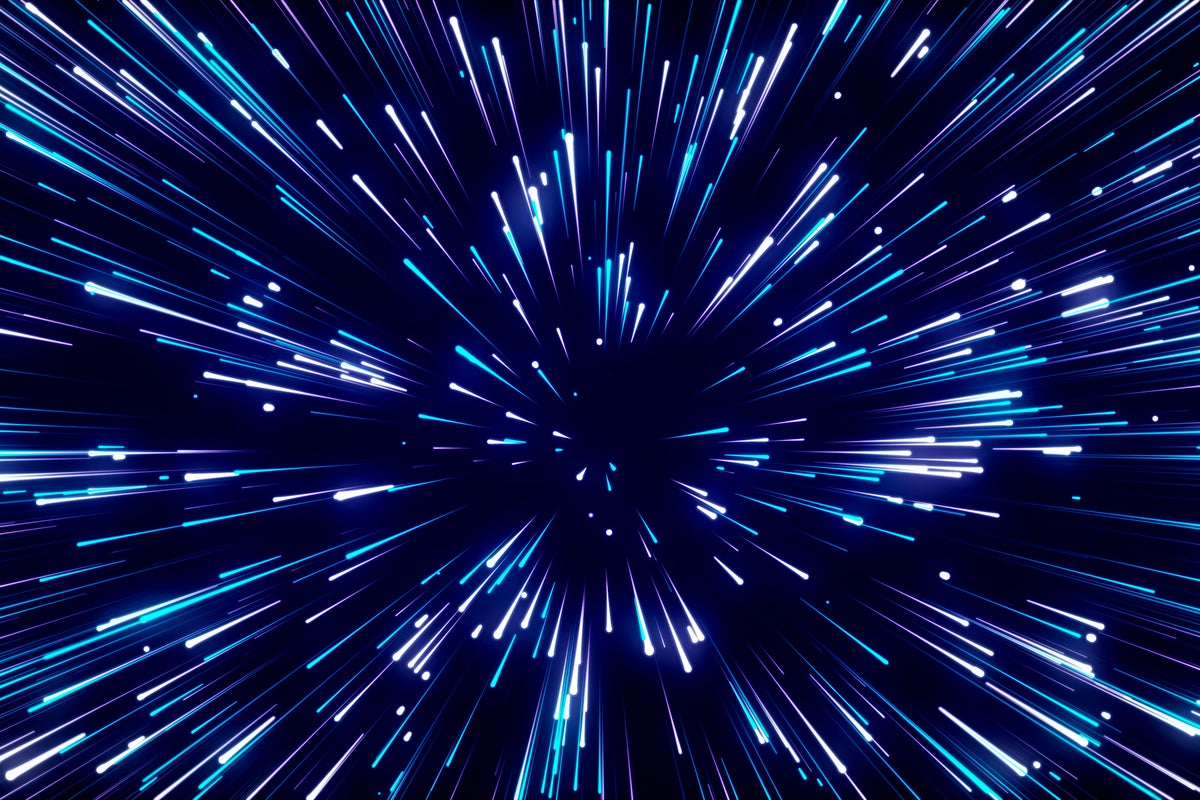No problem! Happy to help.

Something Is Wrong with Dark Energy, Physicists Say
Cosmic surveys suggest the force pulling the universe apart might not be constant after all
No problem! Happy to help.
The big bang didn’t expand into (an) existing space. The Big Bang created the space we now inhabit, along with everything else.
That’s the part that I had the toughest time getting past. Even when I knew better, I kept thinking about the BB as if it were a balloon inflating in an empty room. It took time to realize there was no room and the balloon was all that existed (at least as far as we’re concerned).
Actually, it’s in Tulsa.
Those finding accelerating dark energy to be emotionally unsatisfying may take hope from some recent observations:

Cosmic surveys suggest the force pulling the universe apart might not be constant after all
We’ve long considered the possibility that the “dark energy”, or whatever it is, might not be constant. Constant-lambda models are prevalent mostly just because that’s the simplest, and so the default model in the absence of convincing evidence to the contrary.
The best fit to the data will always be a model where the dark energy can change in time, because adding parameters to a model will always make it fit data better. The question is whether it’s enough better to overturn the default assumption of simplicity.
More puzzling research:
The universe really seems to be expanding fast. Too fast, even. A new measurement confirms what previous—and highly debated—results had shown: The universe is expanding faster than predicted by theoretical models, and faster than can be explained by our current understanding of physics.
This discrepancy between model and data became known as the Hubble tension. Now, results published in The Astrophysical Journal Letters provide even stronger support for the faster rate of expansion.
“The tension now turns into a crisis,” said Dan Scolnic, who led the research team.

The universe really seems to be expanding fast. Too fast, even. A new measurement confirms what previous—and highly debated—results had shown: The universe is expanding faster than predicted by theoretical models, and faster than can be explained by...
Here is the open access article:
The Hubble Tension in Our Own Backyard: DESI and the Nearness of the Coma Cluster
I mean, given that our current models can’t be explained by our understanding of physics, either, I’m not sure that this is really news.
It’s a shame that the authors use the “crisis” language, because this discrepancy has been described in popular media as scientists being dismayed because their model has been shown to be wrong.
In reality, most astronomers as really excited by this, as it’s showing a way to improve our models yet more, which may lead to more discoveries and greater predictive power.
Meanwhile, a good case can be made that we’re not heading towards the Heat Death of the Universe, because it already happened, long, long ago. Stars, planets, even atoms, protons, and neutrons, are all just the decaying embers of a fire that went out in the first fraction of a second.
I would like to expand (no pun intended) on this a bit. First, in many ways time seems logarithmic. By that I mean that as much seemed to happen in the first 10^{-18} second as in the next 10^{18} seconds (getting to current time). There is a theorem to the effect that there is no minimum amount of free energy needed to do a computation. It is merely that the less there is, the slower it will go. So, when the universe is 10^{100} seconds old there could still be lifeforms living in outer space. By our standards they would be huge (maybe solar system huge) and do everything extremely slowly, but that doesn’t mean they couldn’t exist.
Turning things around, one can also conceive of extremely tiny beings living extremely fast during the first second and made up of particles that we cannot find today because they are too small and decay too fast. For them, we would indeed represent the entropy death of the(ir) universe.
If we do think of time logarithmically, then “time 0” is really time -\infty.
That’s true, but what I was referring to is that one measure of the entropy of the Universe is the proportion of particles in the Universe that are massless. Photons have been the vast majority of particles in the Universe for a very long time.